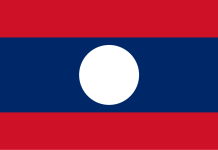Nigerian commercial banks raised N4.4 trillion from the Central Bank’s standing lending facility (SLF) as liquidity problems remained. Deposit Money Banks increase borrowing from the Central Bank of Nigeria’s window to fulfill short-term finance needs while increasing investment in government assets.
The CBN continues to monitor liquidity levels in order to control inflation. Recall that the SLF rate, which banks use to borrow short-term money from the CBN, was raised to 31.75% in August 2024 to reflect the current high interest rate environment.
According to data from the FMDQ platform, the banking system’s constrained funding levels drove interbank rates to rise to the 33% range last week.
While the financial system balance saw inflows, banks betting on Nigerian Treasury and OMO Bills auctions caused a squeeze in the funding profile.
The debits for Treasury bills, OMO bills, and FX auctioned by the CBN last week reduced balance in the financial system, apart from additional outflows relating to cash reserve ratio maintenance.
Analysts at Cordros Capital saw weak naira liquidity, as evidenced by the bank’s excessive activities at the CBN’s SLF window totaling N4.40 trillion.
Details revealed that the CBN debited local banks for additional deposits taken as part of loan-to-deposit ratio maintenance. The financial market also experienced outflows relating to the settlement of N500 billion in OMO bills auctioned by the CBN.
Specifically, analysts said CBN’s 50% cash reserve ratio activities exacerbated the illiquidity, resulting in a significant rise in interbank rates.
The open repo rate increased by 33 basis points to settle at 32.36% on Friday, data from the FMDQ platform confirmed.
Also, the overnight lending rate rose by 60 basis points to settle at 33%. The huge OMO auction debit and FX swap outflow dwarfed net inflows from OMO maturities worth N54.45 billion, thus further pressuring system liquidity.
Thus, the average liquidity closed at a net short position of N651.32 billion, according to Cordros Capital Limited, as against a net short position of N174.26 billion in the prior week.













